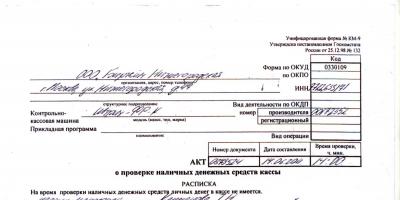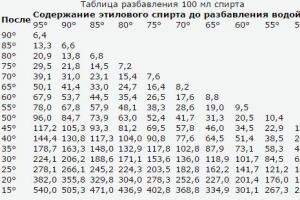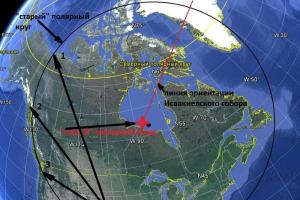 Academic degrees in English
Academic degrees in English
Often in everyday communication in English we use words whose analogues we know well and whose meaning we have no doubt about. But there are exceptions, this often happens when translating academic degrees and titles into English.
The difficulty lies not in memorizing words, but in the difference in the terms themselves, which in turn is due to the fundamental difference in the educational system itself. The peculiarity of using terms denoting academic degrees in English is that those mistakes that are quite acceptable in colloquial speech, are in no way permitted in the official translation of documents.
Academic degrees in English are formed from a unified European and American model of higher education:
- Bachelor
- master
- Doctor of Philosophy (in this sense, philosophy is total population sciences, and not the discipline “philosophy”).
In Russia, over the past few years, the education system, including higher education, has begun to change, which creates certain difficulties. Instead of Ph.D., we have Ph.D. and Ph.D. Renowned Ph.D. - This is often an analogue of our PhD degree. Although it is believed that in Russia it is more difficult to defend and write a dissertation than in other countries of the world, there are assistants who are ready to help future scientific luminaries in this difficult work.
If we take a closer look at the most commonly used equivalents in practice degrees in English, then this is what we get.
The most important indicator of academic degree and qualifications is denoted by the term degree- degree. Bachelor's degree- this is a 3-4 year degree at a university, this is our bachelor. According to the system of scientific achievements, this is first degree, the very first degree. Depending on the field of knowledge, a bachelor's degree can be:
Bachelor of Science, abbr. B.Sc./B.S. (Field of Natural Sciences)
Bachelor of Arts, abbr. A.B./B.A. (Field of Humanities)
Bachelor of Fine Arts, abbr. B.F.A. (Everything related to the field of art)
Bachelor of Business Administration, abbr. B.B.A. (A well-known term from the field of management)
The next level is a master's degree, or master's degree:
Master of Science, abbr. M.S.
Master of Business Administration (M.B.A. - that famous degree, which is essentially just the equivalent of our 6-year university education.)
Master of Fine Arts, abbr. M.F.A.
The next step is a candidate of any sciences, Ph.D. This inscription can be found very often in American films. There are no Doctors of Science in America, but they can be used Doctor (Full Doctor). Doctor of Science- also an acceptable analogue.
Other academic degrees and titles:
- assistant - Assistant Professor.
- any scientific worker is usually a researcher.
- Associate Professor.
- professor - (Full) Professor.
For convenience, you can use this sign

If instead of a “candidate” degree, you need to use a doctorate degree, then replace the word Candidate with the word Doctor.
By the way, if you want to tell your American or European colleague or friend that you have a higher education diploma, then it is better not to use the word diploma, but to say degree . This is much more honorable and accurate.
There is also an Honor Doctor or Honor degree - this is an honorary degree of Doctor of Science, it can be either awarded or withdrawn. Typically awarded to people who have achieved great success in their field, often without any special training. Such people are often invited to teach.
A specialist is a worker whose duties require primary, secondary or higher professional (special) education. Specialist (certified specialist) qualification acquired by a student ... Wikipedia
SPECIALIST- SPECIALIST, specialist, husband. a representative of one or another specialty (scientific, artistic, technical, etc.), a person professionally engaged in one or another type of special work. Radio specialist. Doctor, specialist in children... ... Dictionary Ushakova
Specialist- (specialist) A dealer of the New York Stock Exchange who is authorized by the management of the exchange to maintain the market for certain securities. Specialists act as market makers and are required to perform four functions: quote prices, execute... ... Financial Dictionary
specialist- Cm … Synonym dictionary
SPECIALIST- (French specialiste, from Latin specialic special, private). A person who has chosen a specialty for himself, devoted himself to any one thing, and studied it accurately and in detail. Dictionary of foreign words included in the Russian language.... ... Dictionary of foreign words of the Russian language
Filming specialist- The Pick Up Artist Genre Comedy Director James Toback Producer Warren Beatty David Lee McLeod ... Wikipedia
SPECIALIST- a person who has acquired in-depth knowledge or skills in a limited area. It happens that a specialist loses his understanding of life in general, and sometimes even of whether the results of his work are positive or negative; see Functionary... ... Philosophical Encyclopedia
specialist- a, m. spécialiste, German. Specialist. A person who is proficient in what kind of language. specialty, having special knowledge in what area. fields of science, technology, art. BAS 1. Every person should, without ceasing to be a person,... ... Historical Dictionary Gallicisms of the Russian language
Specialist- a person with special knowledge and skills. Dictionary of business terms. Akademik.ru. 2001... Dictionary of business terms
SPECIALIST- SPECIALIST, huh, husband. Worker in the field of what n. a certain specialty. Training of specialists. Narrow village S. wide profile. Young s. (university or technical school graduate, beginner independent work). S. on vascular surgery. | wives... ... Ozhegov's Explanatory Dictionary
SPECIALIST- “The Specialist” USA, 1994, 109 min. Action, thriller, melodrama. Hitman Ray Quick (literally “Quick”) comes face to face with the attractive May Munro, who ordered the murder, only 70 minutes into the film and their first personal... ... Encyclopedia of Cinema
Books
- Specialist, Gregg Gerwitz. A 100% professional, uncompromising and dangerous litigator Tim Rackley has only one weak point - his family. Tim was never able to come after the sudden and... Buy for 300 rubles
- Specialist, Andrey Konstantinov. A mysterious visitor brings an unusual manuscript to the director of the Agency for Investigative Journalism, Andrei Obnorsky, and offers to publish it. It tells about the kidnapping of his wife and...
The education system of English-speaking countries is fundamentally different from the Russian one. Therefore, when translating scientific statuses, confusion often arises. In this article we will describe Russian-English correspondences in this area.
One of the most important indicators of scientific qualifications is degree degree. In English-speaking countries, successful completion of a three- or four-year course of study at a higher educational institution, as a rule, leads to obtaining Bachelor's degree Bachelor's degree:
Bachelor of Science, abbr. B.Sc./B.S. (natural Sciences)
Bachelor of Arts, abbr. A.B./B.A. (humanitarian sciences)
Bachelor of Fine Arts, abbr. B.F.A. (art)
Bachelor of Business Administration, abbr. B.B.A. (control)
The bachelor's degree is often called in English-speaking countries first degree. For example, a scientist who has received a new specialization may say this:
I got my first degree in physics and then I switched over to the field of chemistry.
IN Russian In universities, a bachelor's degree is awarded to a graduate with a four-year cycle of study (bachelor) who has passed state exams.
Students continuing their studies after receiving the first degree ( graduate/postgraduate students), may apply for master's degree:
Master of Science, abbr. M.S.
Master of Arts, abbr. M.A.
Master of Fine Arts, abbr. M.F.A.
To obtain this degree, the student must attend lecture classes and participate in research work, after which they pass a series of exams and, as a rule, submit dissertation thesis.
IN Russian In universities, a master's degree is awarded to a graduate with a five- or six-year cycle of study who has completed and defended a diploma project. It should be kept in mind that the word use of the word diploma by analogy with the Russian word diploma(document confirming graduation from university) incorrect and can lead to an inaccurate understanding by the interlocutor of your thoughts, since in English-speaking countries completing the course with receiving diploma usually less honorable than receiving degree. Talking about higher education, should be consumed degree. For example, a physics engineer might say:
I have a master's degree in physics.
The next degree in English speaking countries is Doctor of Philosophy degree, abbr. Ph.D. It is awarded in both the natural sciences and the humanities. The word Philosophy should not confuse Russian speakers, since initially it had a more general meaning in English “science in general”, which in this case has been preserved to the present day. The holder of this degree can be, for example, a mathematician:
I left England to go to the USA to be a student of advanced mathematics. In the USA I earned the degree of Master of Science and also Doctor of Philosophy.
The Doctor of Philosophy degree is often called doctoral degree/doctor’s degree/doctorate:
I studied at a college in California for my bachelor’s degree and my master’s degree. Then I got my doctoral degree at the University.
The applicant for this degree conducts original scientific research, usually as part of a specific curriculum Ph. D.program/studies, takes exams and presents doctoral thesis/dissertation. As a rule, a researcher begins work on a doctoral dissertation after receiving a master's degree:
I am twenty-six years old and have just completed my master’s degree in science. And I'm going to begin my Ph. D. program next September in the USA.
Scientists often call master's degrees And advanced/graduate/higher degree doctors:
After graduation from the University I received a higher degree in mathematics at Florida University.
A scientist may hold several degrees in different fields and from different educational institutions:
I have graduate degrees from the American University and the University of Miami in Florida.
It is generally accepted that the degree of Doctor of Philosophy corresponds to the Russian scientific degree of Candidate of Sciences. The concept of an academic degree of a candidate of sciences can be expressed, for example, by the word doctorate:
I got my doctorate in economics two years ago.
Type combinations candidate's degree/candidate of sciences or candidate of chemistry/candidate of chemical science(s) and so on. may not be understood, since this is a literal translation from Russian. Their use is acceptable only with explanations.
Not in favor of literal translation Russian phrase candidate of sciences as candidate of science(s) without appropriate explanation, two circumstances speak.
Firstly, it can be interpreted by the speaker in English by analogy with the phrases bachelor of science, master of science and thereby create the impression that you work in the field of natural sciences, but this may not be true.
Secondly, it is necessary to take into account that the word candidate is often used in combinations Ph.D. doctoral candidate, where it indicates that this researcher is working on a dissertation for the scientific degree of Doctor of Science, i.e. I have not yet received my doctorate degree. Combination doctoral candidate may be a good equivalent to the Russian concept applicant(for the degree of Doctor of Science).
Now I am a candidate for the degree of Doctor of Mathematical Sciences. – Now I am a doctoral candidate in mathematics.
Accordingly, to denote the concept graduate student along with phrases graduate/postgraduate student a combination can be used doctoral student especially when we consider that it more accurately conveys the postgraduate student's position as a researcher working on a dissertation equivalent to a doctoral dissertation in English-speaking countries. The point is that combinations graduate student(American) and postgraduate student(British) are used to refer to students who can work in programs leading to either a PhD or a Master's degree. Along with the Doctor of Philosophy degree, there are a number of honorary doctorates in English-speaking countries honorary/higher/senior doctorates,Honor Doctor, Honor degree or Doctor honoris causa , awarded for long-term and fruitful scientific activity. Among them are degrees: Doctor of Science, abbr. D.Sc.(natural Sciences); Doctor of Letters, abbr. Lett.D.(humanitarian sciences); Doctor of Laws, abbr. L.L.D.(jurisprudence). They do not require special research or the writing of a dissertation and are awarded based on the total merits of famous scientists.
A scientist may hold several or even many honorary doctorates. Combination senior doctorate may convey a Russian concept doctorate degrees.
However, it should be understood that To obtain a Doctor of Science degree in Russia, you need to write a dissertation, as well as a monograph. When using combinations like Doctor of Science / Doctor of the Sciences / Doctor of History / Doctor of Technical science (s) clarification should also be given for the transfer of a doctorate degree. In particular, it can be emphasized that the Doctor of Science degree is the highest academic degree in our country, and many of its holders have the title of professor:
The Russian Doctor of Science degree is the highest research degree in this country. Many scientists having that degree are professors.
Except research degrees in English-speaking countries there are also professional doctorates, which are assigned to specialists of certain qualifications in a number of areas:
Doctor of Medicine, abbr. M.D. (medicine)
Juris Doctor, abbr. J.D. (jurisprudence).
In English-speaking countries, the holder of a professional degree must have qualifications that meet the requirements for specialists of this type by the relevant professional association. For example, to obtain a Juris Doctor in the United States, you typically must first obtain a bachelor's degree and then successfully complete a three-year law school; to obtain the Doctor of Medicine degree - a bachelor's degree and complete a four-year medical school And internship. Thus, it can be said that professional degrees in English-speaking countries correspond to Russian diplomas of doctors and lawyers, although they require more time to obtain them, and cannot be used as equivalents to Russian academic degrees of candidates and doctors of medical and legal sciences. Holders of these degrees must take this circumstance into account and, if necessary, give, for example, the following explanation:
I have a degree which we call Doctor of Medical Science degree. It is our senior research doctoral degree in this field.
Well, what did I write wrong, I highlighted that for a non-IT specialist it’s a big problem, for an IT specialist it’s a minor problem (for example, if it’s with details, then in Quebec you can’t take an engineering position). Developer, that is, developer! = engineering position, at least according to Quebec concepts, so what problems. Seigneur is not a seigneur, but if they give you the title Software Engineer in Quebec, and you are not a member of the order, then you and the office who hired you for this position will be afflicted. And your colleagues will snitch on you. If you become a member of the order, then from Ukrainian. with a diploma it will be much more crippling than with a Quebec one. Read the entry procedure. When you apply to the Quebec program, you sign up for the fact that your specialization falls under the order and you are familiar with it. When you are given a Quebec selection certificate after the interview, you are given the opportunity to sign this document again in front of the immigration officer. I signed such a document, and so did my wife. Any other questions? But at the same time, we have the right to work as developers and technicians in IT. I can’t handle electronics, there are so many bugs that I can forget. I once read on the blog of an electrician how many circles of hell he went through to join the association, become a member and steps to take his rightful position. No, I would never undertake such feats. But I didn’t argue in IT, you just somehow misread my phrase. Tell me why I added then that IT is an exception, but now you are confirming this and arguing. They gave their own example, and they themselves are from IT. If you could get a job as an electrician or electronics engineer without an association, that would be cool.
How do you read programs if the phrase:
But in Canada they say it’s a problem, especially if you don’t go to work in an IT specialization.transformed into
“problem” is clearly not a “pleasant exception” even for an IT specialty.
What I wrote I translate into two cases:
1. Problem for a non-IT specialty - high level asses.
2. The problem for IT specialists is the low level of ass.
You just ended up with an ass for both cases. Those. a piece of program that emphasizes the exclusivity of your optimized IT. And even after pointing out that you threw this piece away in vain, you continue to argue again. That the problem is not a “pleasant exception.”
As for me, the fact that a big ass has transformed into a small ass can already be considered a “pleasant exception.” Or not. Let's argue again, let's optimize something else then. So-called premature optimization detected. You can throw it away when everything is already clear and meaningful. And not when it’s not clear (well, you don’t understand what the charms of an exception are and why there’s still a small ass left even for IT specialists) but the exception was thrown out. It is not right. You were in a hurry.
This term has other meanings, see Specialist. Specialist (certified specialist) is a qualification acquired by a student after completing a special training program. In specific specialties it has its own ... ... Wikipedia
Clinical Research Specialist- (this position is often also called "Clinical Research Monitor" or simply "Monitor") a researcher who coordinates clinical trials of drugs, biological products or medical equipment. He must ensure proper... ... Wikipedia
Academic degree- level of the qualification system in science, which allows ranking scientists at certain stages of their academic career. Currently in Russian Federation award academic degrees of candidate and doctor of sciences. Contents 1 Academic degrees ... Wikipedia
Academic degree- Academic degrees and titles qualification system in science and higher school, which allows ranking scientific and scientific-pedagogical employees at individual stages of their academic career. Currently in the Russian Federation they award... ... Wikipedia
Master (academic degree)- This term has other meanings, see Master (meanings). A master's degree is the next stage of higher professional education, allowing you to deepen your specialization in a specific professional area. Upon completion, ... ... Wikipedia
Laureates of the Stalin Prize for outstanding inventions and fundamental improvements in production methods- The Stalin Prize for outstanding inventions and fundamental improvements in production methods is a form of encouragement for citizens of the USSR for significant services in the technical development of Soviet industry, the development of new technologies, modernization... ... Wikipedia
Stalin Prize for outstanding inventions and fundamental improvements in production methods (1949)- This page is an information list. Main articles: Stalin Prize, Stalin Prize for outstanding inventions and fundamental improvements in production methods ... Wikipedia
master- This term has other meanings, see Master (meanings). Master (from Latin magister mentor, teacher) academic degree, qualification (in some countries an academic degree) acquired by a student after... ... Wikipedia
Stalin Prize for outstanding inventions and fundamental improvements in production methods (1953)- Laureates of the Stalin Prize for outstanding inventions and fundamental improvements in production methods, issued in 1953, Arkhangelsky, Mikhail Fedorovich, cameraman Artsimovich, Lev Andreevich, Golovin, Igor Nikolaevich, Zhukov, ... ... Wikipedia
Construction education- Construction education is professional education in the construction industry, including primary, secondary and higher vocational education. Contents 1 History 2 Primary education ... Wikipedia
Psychologist- a specialist in the field of psychology with appropriate education, postgraduate training for activities in a particular field of psychology, a state license and a master’s degree or, preferably, a candidate’s degree... ... Encyclopedic Dictionary of Psychology and Pedagogy
Books
- PROSECUTOR SUPERVISION. Textbook and workshop for academic bachelor's degree, Smirnov A.F. - Answer. ed., Usachev A.A. - Answer. ed.. The textbook helps students develop a comprehensive understanding of the organization and activities of the Russian prosecutor's office. In accordance with the requirements of the Federal State Educational Standard for Higher Education in the areas of training... Buy for 1268 rubles
- Psychology. Guide to practical classes, Ostrenkova Margarita Evgenievna. The present tutorial complements the basic textbook “Psychology” (Lukatsky M. A., Ostrenkova M. E.), which is the main textbook for students studying in accordance with the federal state...








